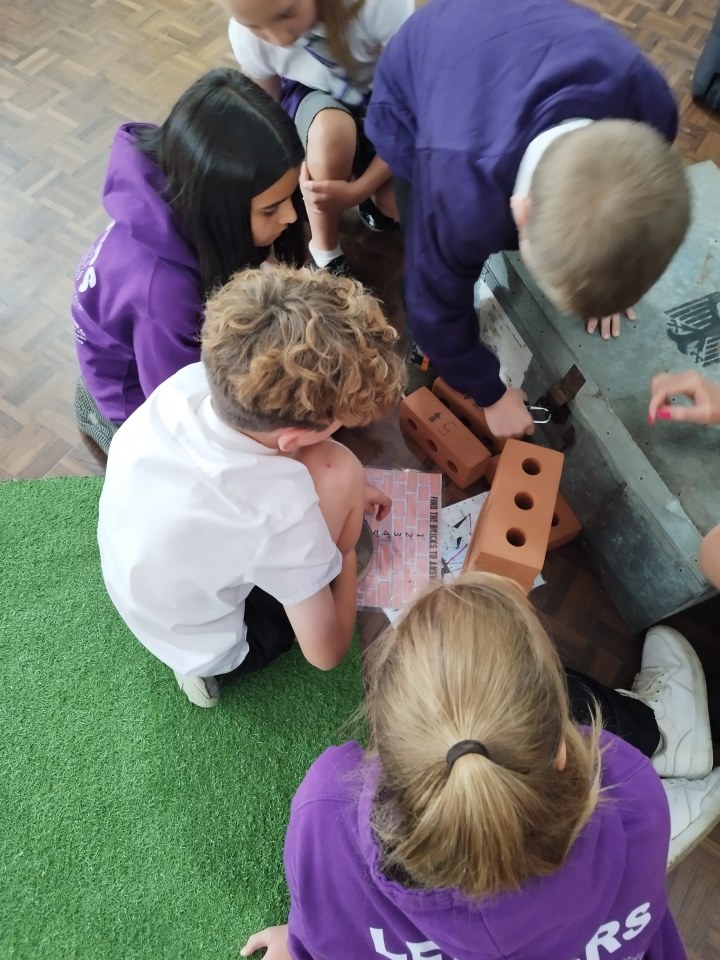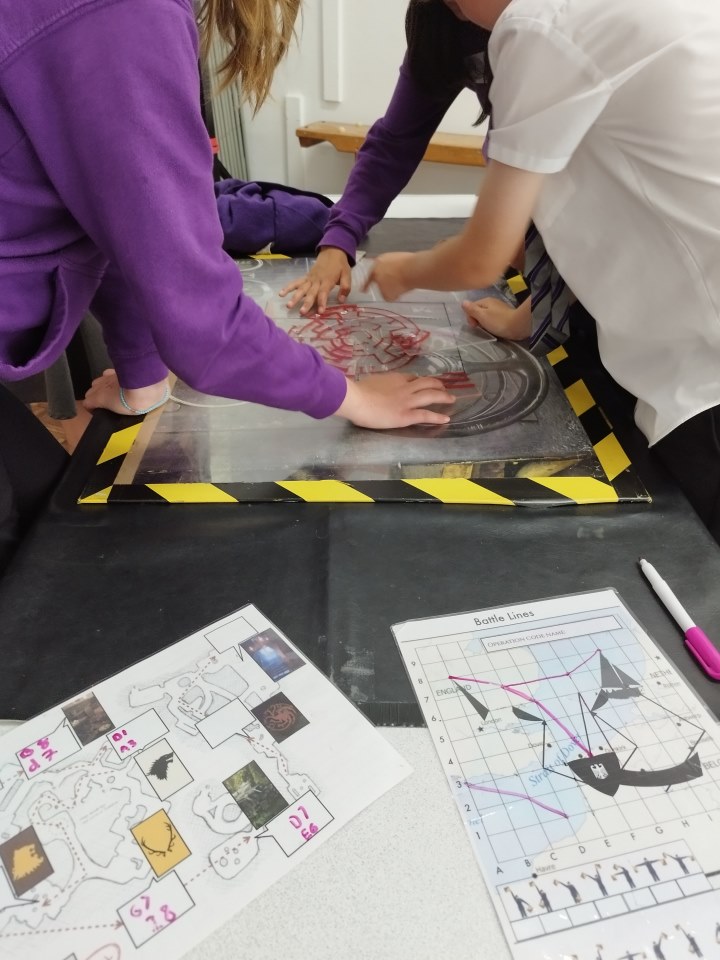Maths
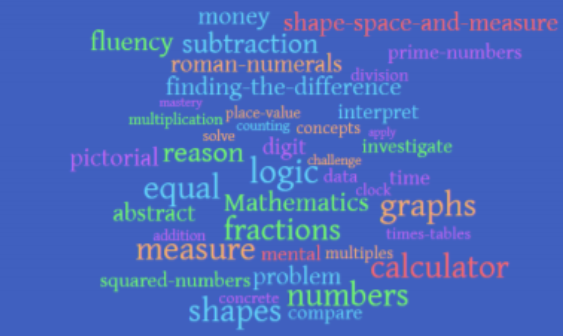
Mathematics is an important creative discipline that helps us to understand and change the world. We want all pupils at Kingswood to experience the enjoyment of mathematics and develop a sense of curiosity about the subject with a clear understanding.
We foster a positive ‘can do’ attitude and we promote the fact that ‘We can all do maths!’ We believe all children can achieve in mathematics and that there is no ceiling to learning. We teach for secure and deep understanding of mathematical concepts through progressive tasks. Mistakes and misconceptions are considered an essential part of learning and teachers help children to view them as such. We believe that all children should be given the opportunity to be challenged and explore their mathematics more deeply. As such any child, no matter their current attainment, will receive extra challenges if they reach a good understanding of the current maths learning. All children will be given daily opportunities to reason, prove and problems solve.

Intent:

Our intent for mathematics at Kingswood Academy Primary is to promote great learning and development amongst all pupils. We aim to ensure that good progress and standards of achievement are high for all pupils.
We aim to teach a rich, balanced and progressive curriculum using maths to reason, problem solve and develop fluent conceptual understanding in each area. Our curriculum allows children to make better sense of the world around them by making connections between mathematics and everyday life. Our policies, resources and schemes support our vision and clearly outline where maths can be incorporated across different curriculum areas.
We aim to ensure that mathematics is a high-profile subject which all children view positively. We want them to be passionate and enjoy learning mathematics, which comes through a growing belief in their own ability to achieve success in the challenges they undertake. We want all children to develop a resilient, determined attitude and become independent learners that are ready to progress to the next stage of their learning.
We aim for all pupils to:
- Become fluent in the fundamentals of mathematics so that they develop conceptual understanding and the ability to recall and apply knowledge rapidly and accurately.
- Be able to solve problems by applying their mathematics to a variety of problems with increasing sophistication, including in unfamiliar contexts and to model real-life scenarios.
- Reason mathematically by following a line of enquiry and developing and presenting a justification, argument or proof using mathematical language.
- Have an appreciation of number and number operations, which enables mental calculations and written procedures to be performed efficiently, fluently and accurately to be successful in mathematics.
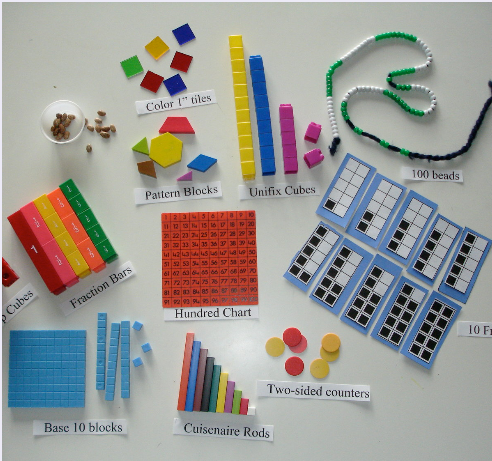
 Implementation:
Implementation:
Our whole curriculum is shaped by our school vision, which aims to enable all children, regardless of their background, ability and additional needs, to flourish and become confident and motivated learners.
Our curriculum is frequently reviewed to ensure that it is current and effective. Teachers are supported and aided in their teaching of mathematics through appropriate, high quality and regular CPD, ensuring confidence in the skills and knowledge that they need to teach. CPD is provided by the subject leader, external courses and from a teaching and learning consultant for mathematics. All staff are encouraged to raise questions, seek support and request further training if needed in order to ensure all teachers' subject knowledge is to a high standard. Good practice is always shared between staff and all CPD is used to inform teaching and learning in school.
The structure of the mathematics curriculum across school shows clear progression in line with age-related expectations. Teaching curriculum content in blocks allows children to explore skills and knowledge in depth and gain a secure understanding of a particular concept. Key knowledge and skills are also revisited regularly, allowing repetition to embed learning. A concrete, pictorial, abstract approach provides children with a clear structure in which they can develop their depth of understanding of mathematical concepts.
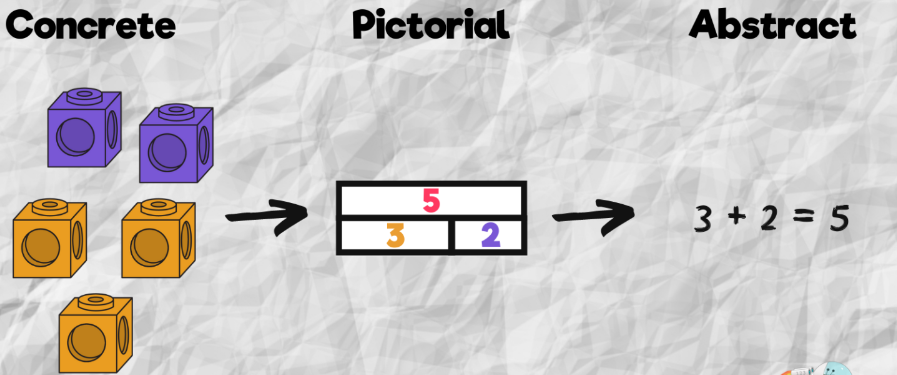

Quality First Teaching and Maths Mastery are teaching and learning approaches that we use within a whole class teaching approach. We believe all children have the potential to succeed, and they should therefore have access to the same curriculum content. If at any point a pupil is struggling with a procedure, teachers will revert to a smaller, focussed group size to solidify their understanding or revisit the previous year’s strategy.
Children are taught Mathematics for approximately 1 hour daily. As part this, we incorporate daily reasoning as an ‘anchor task’ to further children's conceptual understanding of problem-solving. These are often taken after looking at areas for development from summative assessment or as an opportunity to address misconceptions or to deepen understanding in the area of maths being taught at that time.
The National Curriculum is explicit in articulating the importance of children using the correct mathematical language as a central part of their learning (reasoning). New vocabulary is introduced in a suitable context (for example, with relevant, real objects, apparatus, pictures of diagrams) and explained carefully. High expectations of the mathematical language used are essential, with teachers only accepting what is correct. Vocabulary is displayed clearly on working walls and is referred to in every lesson.
Please click here to access free Maths workbooks from the White Rose Maths website that match what is being taught in each class, each term.
 Impact:
Impact:
The impact of our mathematics curriculum is that children understand the relevance and importance of what they are learning in relation to real world concepts. Children know that maths is a vital life skill that they will rely on in many areas of their daily life. School leaders work in conjunction with each other to ensure that mathematical concepts can be revisited and practised in other curriculum areas.
Children have a positive view of maths due to learning in an environment where maths is promoted as being an exciting and enjoyable subject in which they can investigate and ask questions. Children know that it is reasonable to make mistakes because this can strengthen their learning through the journey to finding an answer.
Our maths books evidence work of a high standard in which children clearly take pride; the components of the teaching sequences demonstrate good coverage of fluency, reasoning and problem-solving.
Our feedback and interventions support children to strive to be the best mathematicians they can be, ensuring our children are on track or above. They make good progress as measured from their individual starting points and the age-related expectations of the National Curriculum.
Our vigorous use of PiXL tests in KS1 and KS2 evidence how precise knowledge gaps are successfully identified and targeted in maths lessons in order to ensure children’s next steps are met. Our robust tracking of weekly arithmetic scores outlines the progress the children make and supports identifying common errors and misconceptions. This ensures that teaching is continually informed by assessment.
The impact of our mastery approach and emphasis on the teaching of mathematical vocabulary is evident through class/ pupil discussions and within the classroom environment.
